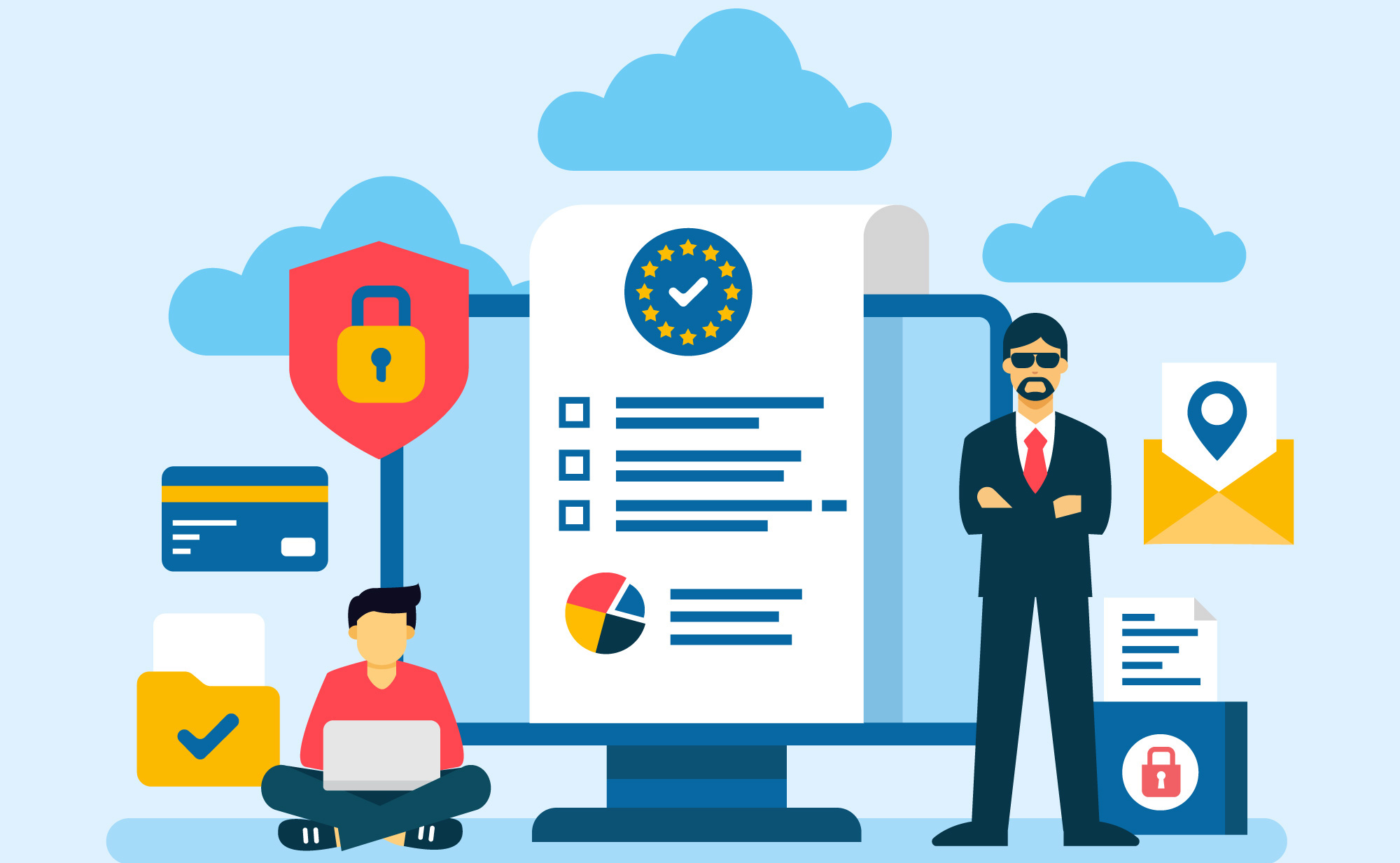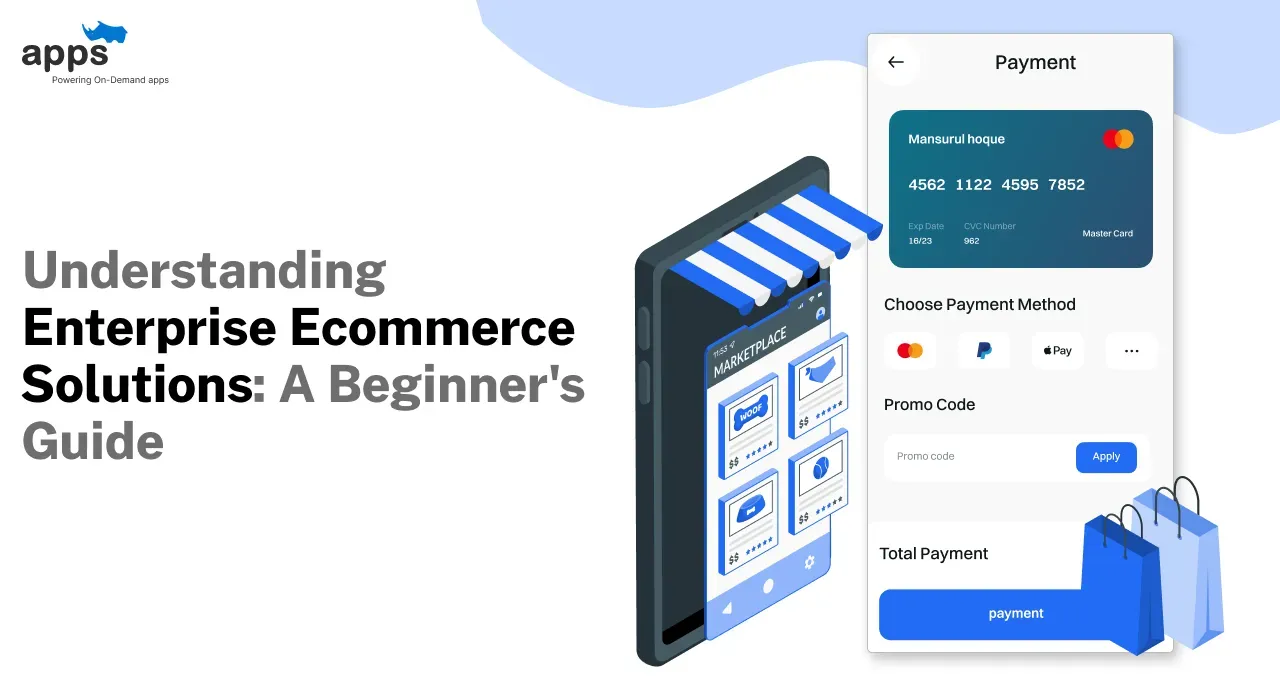- Introduction
- Understanding the Food Delivery Landscape
- Evaluating Your Business Needs
- Choosing the Right Food Delivery Partner
- Technology and Integration
- Additional Considerations
- Conclusion
- Frequently Asked Questions (FAQs)
Table of Contents
How to Choose the Right eCommerce Delivery Solutions for Your Business

Introduction
In today's competitive eCommerce landscape, selecting the right delivery solutions is paramount to your business's success. With the growing demand for efficient and reliable shipping services, choosing the most suitable option can be daunting.
From assessing the needs of your business to evaluating various delivery providers, navigating this process requires careful consideration.
In this comprehensive guide, we will explore the key factors to consider when choosing eCommerce delivery solutions. Whether you are a small start-up or a well-established enterprise, this article will equip you with the knowledge to make informed decisions that align with your business needs and goals.
Understanding the Food Delivery Landscape
In today's digital age, the food delivery industry is booming. With the rise of online food ordering, consumers now have more options than ever for getting their favorite meals delivered right to their doorstep.
As a business owner, it's essential to understand the different types of food delivery services available and choose the right eCommerce delivery solutions that best meet your business needs.
The Rise of Online Food Ordering
Online food ordering has revolutionized the way people order food. With just a few clicks on their smartphones or computers, customers can browse a wide range of restaurants, explore menus, and easily place their orders. This convenience has significantly contributed to the popularity of online food ordering platforms.
Different Types of Food Delivery Services
When it comes to choosing the right eCommerce delivery solutions for your business, it's important to understand the different types of food delivery services available. Here are three main types to consider:
Third-Party Marketplaces (DoorDash, Grubhub, Uber Eats)
Third-party marketplaces connect customers with a variety of restaurants and handle the entire delivery process. These platforms offer a wide range of food choices and have a large customer base, making them an attractive option for businesses looking to increase their reach.
Delivery Aggregators

Delivery aggregators act as intermediaries between customers, restaurants, and delivery drivers. They aggregate orders from multiple restaurants and manage the delivery process. This type of service can benefit businesses that want to outsource their delivery logistics while maintaining control over the customer experience.
Independent Delivery Services
Independent delivery services involve hiring your own delivery drivers to fulfill orders. This option gives you complete control over the delivery process and allows you to provide a personalized customer experience. However, it also comes with the responsibility of recruiting, training, and managing drivers.
Evaluating Your Business Needs
Once you have a clear understanding of the food delivery landscape and the different types of services available, it's time to evaluate your business needs. Consider the following factors:
Target Customer and Demographics
Understanding your target customer and their demographics is crucial when choosing the right eCommerce delivery solutions. Different delivery services may have varying customer bases, so it's important to align your choice with your target audience.
Menu Suitability for Delivery
Evaluate your menu items to determine if they are suitable for delivery. Some dishes may not travel well or may require special packaging to maintain their quality during delivery. Ensure that your chosen delivery.
Delivery Area and Coverage

Consider the coverage area for each delivery service and ensure that it aligns with your business location and target customer base. You want to ensure that your delivery solutions can reach your desired audience without compromising on delivery time or quality.
Choosing the Right Food Delivery Partner
When it comes to selecting a food delivery partner for your business, there are several key factors to consider. The right partner can help you streamline your delivery operations, reach more customers, and ultimately boost your profitability. In this section, we will discuss two critical aspects of choosing the right partner: Popularity with Customers in Your Region and Technology and Integration.
Popularity with Customers in Your Region

One of the most important considerations when selecting a food delivery partner is their popularity and customer base in your specific region. Partnering with a service that is already well-known and widely used by customers in your area can help you tap into an existing customer base and increase your visibility.
Before making a decision, research the popularity and customer reviews of different delivery services in your region. Look for feedback regarding reliability, delivery timeframes, and overall customer satisfaction.
By choosing a partner that resonates with customers in your area, you increase the likelihood of attracting new customers and building customer loyalty.
Delivery Reach and Timeframes

Another crucial factor to consider is the delivery reach and timeframes offered by potential partners. Evaluate the delivery area covered by each service and ensure it aligns with your target customer base. If you have multiple locations, confirm that the partner can efficiently deliver to all of them.
Additionally, take into account the delivery timeframes promised by each service. Fast and reliable delivery is a key factor in customer satisfaction and can significantly impact your business.
Look for partners that have a track record of delivering orders promptly and maintaining consistent delivery times.
Commission Fees and Profit Margins
Commission fees charged by food delivery partners can directly impact your profit margins. Evaluate the commission structure of each potential partner and determine if it aligns with your business model.
While some services may charge higher commissions, they may also provide a larger customer base and more marketing opportunities.
Consider your business's profitability when factoring in commission fees. Calculate how much profit you will make after deducting the commission from each order. Striking a balance between commission fees and profitability is essential to ensure that partnering with a delivery service is financially viable for your business in the long run.
Technology and Integration
In today's digital landscape, technology and integration capabilities are critical considerations when choosing a food delivery partner. Two key aspects to focus on are seamless integration with your point-of-sale (POS) system and a user-friendly interface for both restaurants and customers.
Seamless Integration with Your Point-of-Sale System
Efficient integration between your POS system and the delivery partner's platform is essential for smooth order processing and accurate inventory management.
Look for partners that offer seamless integration options and provide technical support during the integration process. This integration will help streamline operations, reduce errors, and improve overall efficiency.
User-Friendly Interface for Restaurants and Customers
A user-friendly interface is vital for both restaurants and customers. For restaurant owners and staff, an intuitive interface makes managing orders, tracking deliveries, and making any necessary updates easier.
A customer-friendly interface enables easy browsing, ordering, and payment processing, resulting in a seamless and convenient experience.
Additional Considerations
When selecting a food delivery partner for your business, several additional considerations can play a crucial role in determining the right fit for your needs.
In this section, we will explore three key aspects: Brand Reputation and Customer Support, Marketing and Promotional Opportunities, and Data Ownership and Analytics.
Brand Reputation and Customer Support

The brand reputation of your chosen delivery partner can significantly impact how customers perceive your business. Opting for a reputable and trustworthy partner can enhance your brand image and credibility.
Research customer reviews, ratings, and feedback related to the delivery service to gauge their reputation accurately.
Additionally, prioritizing excellent customer support is vital. A delivery partner that offers reliable and responsive customer support can help resolve any issues or queries promptly, ensuring a positive experience for both you and your customers.
Establish clear communication channels with the potential partner to ensure seamless support when needed.
Marketing and Promotional Opportunities
Collaborating with a food delivery partner that provides marketing and promotional opportunities can amplify your brand's visibility and reach.
Look for partners that offer promotional features such as featured listings, discounts, or marketing campaigns to showcase your offerings to a broader audience.
Discuss potential marketing opportunities with the partner, including options for co-branded marketing materials or cross-promotional activities. Leveraging the partner's marketing channels can help increase your brand awareness and attract new customers to your business.
Suggested Reading:
The Step by Step Guide for Developing a Food Delivery App
Data Ownership and Analytics

Data ownership and analytics capabilities are essential considerations when choosing a food delivery partner. Ensure that you retain ownership of valuable customer data collected through delivery orders to leverage for future marketing and business strategies.
Transparency regarding data usage and privacy policies is crucial for maintaining trust with your customers.
Furthermore, robust food delivery analytics provided by the partner can offer valuable insights into customer behavior, ordering patterns, and performance metrics.
Analyzing this data can help you make informed decisions, optimize your menu offerings, and identify opportunities for growth and improvement.
Conclusion
In conclusion, selecting the right eCommerce delivery solutions for your food business is a pivotal decision that demands careful consideration. Understanding the diverse landscape of food delivery services, evaluating your specific business needs, and choosing the most suitable delivery partner are vital steps in enhancing your operational efficiency and customer satisfaction.
By prioritizing factors such as target customer demographics, menu suitability for delivery, delivery reach and timeframes, technology integration, brand reputation, and marketing opportunities, you can position your business for success in the competitive food delivery market.
It's essential to strike a balance between meeting your business objectives and delivering a seamless, satisfying experience to your customers. With these considerations in mind, making informed decisions when selecting eCommerce delivery solutions can fuel the growth and prosperity of your food business.
Suggested Reading :
Exploring the Benefits of ONDC: The Future of E-commerce
Frequently Asked Questions (FAQs)
How do I determine which food delivery service is best for my business?
To determine the best food delivery service for your business, consider factors such as your target customer base, menu suitability for delivery, delivery area coverage, and customer reviews of different services in your region.
What type of food delivery service should I choose: third-party marketplaces, delivery aggregators, or independent delivery services?
The type of food delivery service you choose depends on your business goals and preferences. Third-party marketplaces offer a wide reach, delivery aggregators outsource logistics, and independent delivery services provide more control over the process.
What should I consider when evaluating food delivery partners?
Consider factors such as the popularity of the delivery service in your region, delivery reach and timeframes, commission fees, technology integration capabilities, brand reputation, customer support, marketing opportunities, and data ownership and analytics.
How do commission fees charged by food delivery partners impact my profitability?
Commission fees charged by food delivery partners should be evaluated in conjunction with your profitability. Calculate the profit margin after deducting the commission from each order to ensure the partnership is financially viable in the long run.
What technology and integration capabilities should a food delivery partner have?
A food delivery partner should offer seamless integration with your point-of-sale (POS) system for smooth order processing and accurate inventory management. Their interface should be user-friendly for both restaurants and customers.
What is involved in food delivery app development?
Food delivery app development involves creating a user-friendly mobile application that allows customers to order food from local restaurants. This includes designing an intuitive interface, integrating payment gateways, setting up real-time order tracking, and ensuring seamless communication between restaurants, delivery personnel, and customers.
What features are essential for successful food delivery app development?
Essential features for food delivery app development include user registration and login, restaurant listings, menu browsing, order placement, secure payment processing, real-time order tracking, customer reviews, and support for multiple delivery options.
How do eCommerce food delivery solutions benefit businesses?
eCommerce food delivery solutions offer businesses an online platform to reach a wider audience, streamline operations, enhance customer convenience, and increase sales. These solutions typically include online ordering systems, inventory management, and customer relationship management tools.
What are the key components of effective food delivery analytics?
Key components of effective food delivery analytics include tracking delivery times, analyzing customer preferences, monitoring order accuracy, evaluating customer feedback, and optimizing delivery routes. These insights help improve service quality, efficiency, and customer satisfaction.
How can food delivery analytics improve the delivery process?
Food delivery analytics can identify bottlenecks in the delivery process, optimize delivery routes, reduce wait times, improve order accuracy, and enhance overall customer experience by providing data-driven insights that inform operational decisions.
What are the different types of eCommerce food delivery services?
Types of eCommerce food delivery services include on-demand delivery, subscription-based meal kits, grocery delivery, and corporate catering services. Each type caters to different customer needs and preferences, offering varied convenience and customization levels.
Table of Contents
- Introduction
- Understanding the Food Delivery Landscape
- Evaluating Your Business Needs
- Choosing the Right Food Delivery Partner
- Technology and Integration
- Additional Considerations
- Conclusion
- Frequently Asked Questions (FAQs)




